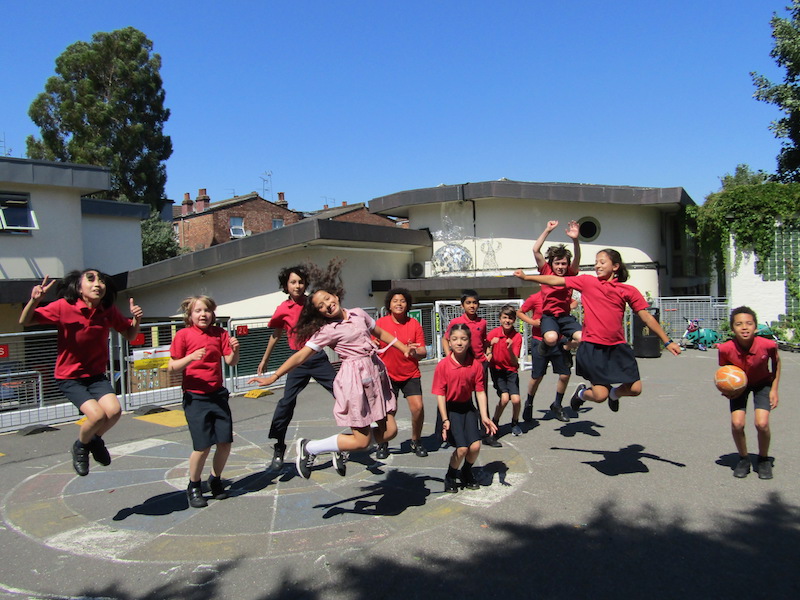Choosing a small, local school makes sense
Posted on 6th May 2021 in School News, Which London School?, Choosing a school

Sarah Gillam, Headteacher of Maple Walk Prep School, considers the benefits of a small school.
Maple Walk is a small school, with a big heart. It doesn’t have a vast array of specialist rooms but it does have children who leave with a love of learning and a desire to pursue subject opportunities at their secondary schools. They also leave with an excellent work ethic and a strong sense of well-being and confidence and an understanding of the community within which they live.
As a small school, we are able to tailor instruction to meet the needs of individual pupils while also encouraging all pupils to meet higher expectations. When class sizes are small, teachers are able to better know the academic strengths and weaknesses of each of their pupils and tailor their instruction accordingly 1. At the same time, because teachers are able to know their pupils better in small schools, they often have higher expectations for them.
Additionally, teachers are able to provide the support needed to meet those high expectations by collaborating with colleagues, maintaining consistent professional development and conversations, and having regular contact with parents 2.
There is much more freedom for pupils to work collaboratively and fun activities that bring learning to life. Our very strong pupil-teacher relationships help pupils feel comfortable taking risks both academically and socially. Researchers have found that “although a variety of factors affect pupil achievement, the greatest factor was the reduction of anonymity — going to a school where someone knows your name.” 3
Pupils at small schools develop life-long relationships with their peers and their teachers in an environment where they are known and appreciated as a whole person, not just a classmate or another pupil. These close peer relationships help pupils in small schools feel safe and included, regardless of their differences. 4
Maple Walk has a small staff team who are connected with each other and collaborate all the time; they can easily share ideas, updates and research. It is known that, when a teacher is enthusiastic about teaching, “pupils are more likely to be interested, energetic, curious, and excited about learning.” 5
I believe that Maple Walk can foster citizenship, leadership, and social skills through increased pupil engagement. Pupils are more likely to be highly engaged in the school community, leading to a sense of personal responsibility for the community. Pupils generally have more opportunities to participate in clubs, athletics, and the arts, allowing them to develop leadership skills in a greater diversity of situations.
Maple Walk has a positive ethos that fosters a family atmosphere; the children have a strong sense of connection mixing with all year groups, encouraging kindness and care. Excellent standards of behaviour can be established within a small community and very strong and close links with parents and the community.
It’s no surprise then that pupils enter their secondary school of choice, academically well prepared, self-assured and equipped with excellent life skills reinforced by our recent ISI Inspection who judged us “Excellent in All Areas”. However, for us internally, perhaps the fact that they frequently return to visit us is both rewarding and affirming that we have given them the best start on their learning journey.
References
1. Method Schools. What are the Advantages to Schools with Small Class Sizes? June 2015. http://www.methodschools.org/blog/what-are-the-advantages-to-schools-with-small-class-sizes
2. Dunne, Diane Weaver.
3. Dunne, Diane Weaver. Are Smaller Schools Better Schools? Education World. 2000. http://www.educationworld.com/a_issues/issues108.shtml
4. The Tenney School. 5 Social Advantages of Small Schools. http://www.tenneyschool.com/5-social-advantages-of...
5. Patrick, Angela Scott. Examination of Teacher Workplace Satisfaction and Student Achievement. Georgia Southern University, Jack N. Averitt College of Graduate Studies. Fall 2007. http://digitalcommons.georgiasouthern.edu/cgi/viewcontent.cgi?article=1272&context=etd
This article first appeared in the 2021/22 edition of Which London School? & the South-East, which you can read here: